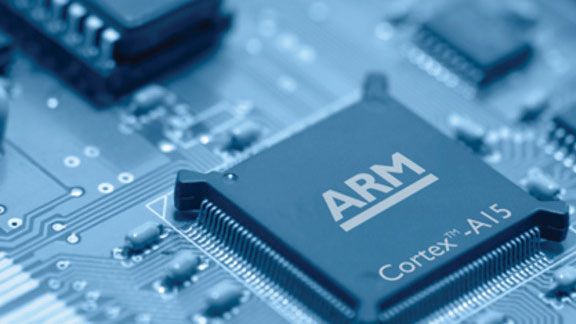Google could be designing its own server chips in the near future
ARM could leave AMD and Intel shaken and stirred

Google is considering designing its own server processors using technology from ARM Holdings, a move that could possibly threaten Intel's dominance in the market.
A Bloomberg source has suggested that Google will drop Intel Inside for its data centres in favour of chip designs developed by ARM. The British-based company's chips are most frequently found in smartphones, tablets and other mobile devices.
The move away from the x86-based units, which are currently in place at the company's data centres, would save upfront and ongoing costs. ARM chips for servers are cheaper, consume less power and require lower cooling than the current Intel chips on offer. Other silicon vendors are also pursuing the ARM-server opportunity, including Marvell and Calxeda.
Intel, which counts on Internet companies to help drive its processor sales, stands to lose substantially if this venture is to go through. Google is currently Intel's fifth largest customer, accounting for 4.3 per cent of its revenue.
Google already designs its own server motherboards to fit the current Intel processors, so doesn't necessarily need to design its own chip hardware, Researcher Nathan Brookwood says.
Compelling benefits
"The only possible rationale for a company like Google to do it's own processors would be if it had some proprietary algorithms that it wanted to implement in silicon, rather than in software," he added.
Chip design is a different beast to the motherboard production that Google currently operates. The upfront costs are higher and production economics favour higher volumes rather than single company production. This means that the performance or power benefits of Google's new venture would have to be compelling to justify it moving from Intel to design their own chips.
Sign up to the TechRadar Pro newsletter to get all the top news, opinion, features and guidance your business needs to succeed!
In August Google joined a group that licenses technology used in data servers, including chips. Job openings at Google also include one for a 'design engineer' with qualifications in basic chip design.